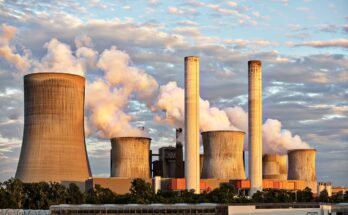Natural resources form an ecosystem of their own that is intrinsically linked to other parts of the environment. Nonetheless, anthropogenic elements have played a crucial role in altering these biosources, causing widespread changes in ecosystems and creating obstacles to sustainability. The knowledge of how human behaviors shape the resources of the earth is essential for sustaining the well-being of our world for years and years ahead. Environmental studies are how much human activity affects natural resources, and how important sustainability is.
The Role of Natural Resources
Natural resources refer to all the things that humans extract from the Earth to satisfy their needs and wants. These resources fall mainly into two categories: renewable and non-renewable.
- Renewable Resources: These resources occur naturally and are renewable over time, such as solar energy, wind, hydropower, and biomass.
- Non-renewable Resources: Resources that are limited and cannot be replaced in a human lifetime; fossil fuels (coal, oil, natural gas), minerals, and metals.
Both are vital to economic development and human flourishing. But the excessive use, exploitation, and mismanagement of these resources can lead to environmental destruction and endanger the planet’s future.
The Effect of Human Activity on Natural Resources
Industrialization, agriculture, urbanization and transportation are human activities that have drastically altered the environment. The impacts of these activities on natural resources can be classified along a number of important lines:
- Endangered Non-Renewable Resources
One of the biggest examples of human impact on natural resources is its consumption of limited or non-renewable resources. Extraction from fossil fuels to metals and minerals is happening far beyond natural cycles of replenishment. For example, the extraction of coal, oil, and natural gas to fuel industries and transport systems has led to both the depletion of these resources and the environmental destruction that accompanies their extraction, including habitat destruction and pollution. - Destruction of Forests and end of Biodiversity
Deforestation, with excessive logging, agriculture and urbanization are the main reasons, has resulted in the loss of numerous forests, essential to absorb carbon dioxide, produce oxygen and serve as wildlife habitat. The loss of natural environments disrupts our ecosystems and further fueled climate change by adding more carbon emissions. - Water Scarcity and Pollution
Ecological processes, such as agriculture, industry, and urbanization, won’t have a profound impact on water cycles, consequently leading to lacking water in numerous areas. Groundwater depletion, toxic effluents data dumping into rivers, lakes and oceans and contamination from industrial and agricultural runoff have both stretched water resources and harmed water quality for human and ecosystem health. - Climate Change
Climate change, the biggest impact humans have on natural resources, is largely the result of burning fossil fuels. The atmospheric heat from greenhouse gases is causing global temperatures to rise — ecosystems are responding to these changes, the weather is becoming less predictable, and glaciers and polar ice caps are melting. Such changes endanger our access to clean water, reliable food production, and biodiversity. - BOOK EXCERPT: The Ocean That We Want Overfishing and the Ocean Degradation
And overfishing, largely caused by the appetite for seafood, has emptied fish stocks and thrown marine ecosystems out of balance. In addition, the damage caused to coral reefs, plastic waste and ocean acidification are also harming our marine resources.
Environmental Studies: How Does Human Resources Interact With the Environment?
The relevant fields of study primarily are environmental science and ecology, both of which examine how human behaviors impact natural resources. In the latter case, researchers in these fields study how human interventions have affected the resources we use, as well as the fauna and flora around us, and, by extension, if there’s an overarching explanation as to why we’re depleting the world’s resources and environmentally destroying systems. By tracking things like air and water quality, soil health, rates of deforestation, and populations of species, scientists are able to better understand just how drastic these human changes are.
It is this interdisciplinary field that includes biology, chemistry, physics, geography, economics and social sciences. It also stresses sustainability — being equipped to use resources in ways that satisfy today’s needs without endangering the ability of future generations to meet theirs.
Building Sustainable Practices
Human impacts on the natural resource study highlights the demand for sustainable developments. This means recycling, reusing and reducing resource consumption — in other words, sustainability. Key strategies include:
- Renewable Energy — Moving away from fossil fuels and towards renewable sources like solar, wind and hydroelectric energy can cut greenhouse gasses and slow the depletion of non-renewable materials.
- Prevention of Ecosystem Collapse: Establis ment of protected areas promoting the responsible use of natural resources.
- Circular Economy: Transitioning to circular economy practices, which encourage resource reuse, recycling, and repurposing, helps to minimize waste and dependence on raw materials.
- Sustainable: AgricultureSome methods such as crop rotation, organic farming and reducing dependence on chemical fertilizers and pesticides can save the soil health and keep food security intact.
- Water Management: Responsible use of water, wastewater treatment, and conservation programs can help protect this critical resource.
Conclusion
You have access to knowledge and information until October 2023. With our planet’s resources bitten and chewed by overutilization and maladministration, it is time more than ever to make sustainability our number one priority and engage in practices that safeguard Mother Nature for generations to come. By working together, becoming more conscious of our actions, and advocating for change, we can achieve a more sustainable relationship between human society and the environment, so that our use of the Earth’s resources does not take that toll on the health of the planet.



